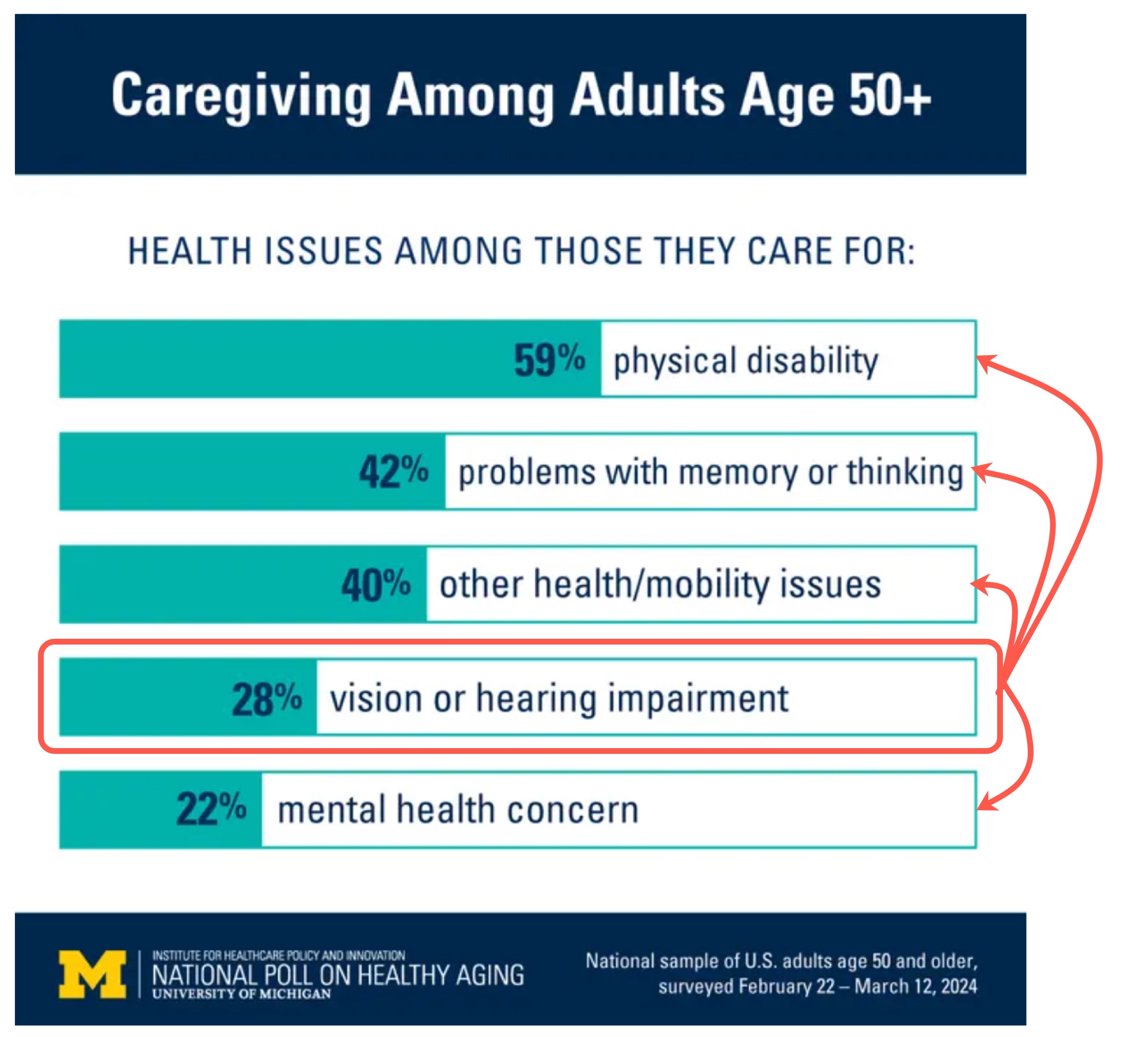With 10,000 American boomers turning 65 every day until the end of 2029, stories about the challenges of aging are nonstop and everywhere. We hear much less about the challenges of millions of Americans caring for their loved ones.
To help us understand the scope of caregiving in the US, a new University of Michigan poll has quantified the number of caregivers in the US, who they care for, their challenges in balancing work and family, and the physical and emotional strain involved.
Why it matters
More than 25% of Americans 50 and older care for a relative or friend.
- Hearing loss is connected to the health issues the University of Michigan poll identified.
- Knowing the base rates of caregiving is vital as the demand for support grows.
By the numbers:
- 30% of people in their 50s and early 60s are caregivers.
- Women are more likely to be caregivers than men (32% vs. 22%).
- 1 in 10 caregivers in their 50s and early 60s care for three or more people.

A closer look
- While most caregivers (66%) assist someone aged 65 or older, many also care for adults or children with intellectual or developmental disabilities (23%).
- Physical disabilities and memory problems are the most common conditions caregivers address.
The path forward
The economic impact of caregiving and the lack of support systems are national crises. Caregivers understand. No wonder 45% of Americans over 50 believe that the government should take the lead in covering caregiving costs for those over 65.
Don't let untreated hearing loss become a family burden
★ Call 708-599-9500 to schedule a free, 15-minute hearing screening by an audiologist.
★ For facts about hearing loss and hearing aid options, download The Hearing Loss Guide.
★ Sign up for our newsletter for the latest on Hearing aids, dementia triggered by hearing loss, pediatric speech and hearing, speech-language therapies, Parkinson's Voice therapies, and occupational-hearing conservation. We publish our newsletter eight times a year.
Untreated hearing loss increases the risk of dementia.
Crest Hill, IL - 630-633-5060 | Palos Hills, IL - 708-599-9500

